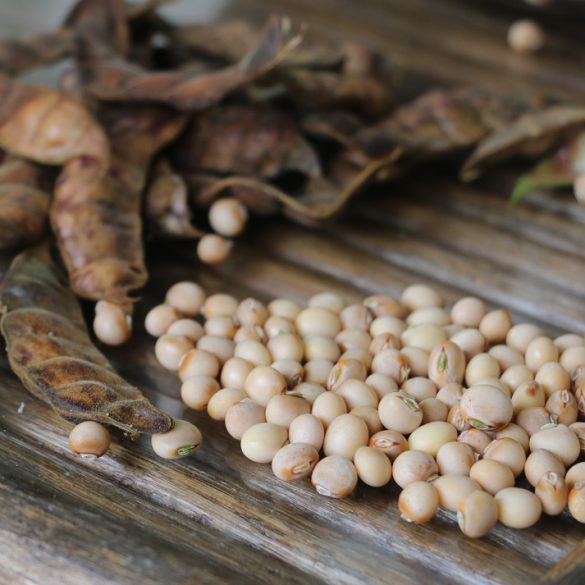Deborah recently commented on my pigeon pea survival profile page about her success in growing pigeon peas in North Florida:
“I planted pigeon peas here in N. Florida (Gainesville) a few years ago. We had a mild winter that year, and both of them thrived and came back strong in the spring. They bloomed in late winter, early spring and gave me a great harvest. The next year, we were predicted to have a harsh winter, so I cut them back to about 2 feet and covered them with large pots stuffed full of leaves. Both survived and came back out and grew well, blooming in the fall. I had heard that the production goes down significantly in year three, so I didn’t protect them, but I did plant some seeds next to them so I could use the dead trunks as stakes (the plants tend to fall over when young.) As expected, the trees froze, but the seeds sprouted in the spring and lived two years using the same method I used before. I have two plants growing now, one next to an elderberry which is growing like mad, and one volunteer inside my courtyard that isn’t growing so well. I’m moving next summer, so I’ll protect the smaller one this winter hoping for spring blooms, but if it freezes, so be it.
I love that the pollinators love them. I live in SW Gainesville in a high-density population area and have a hard time getting pollinators, but the carpenter bees love my pigeon peas.”
Good to know!
I tried pigeon peas for a couple of years a little south of Gainesville without much luck. We got a few peas, but both of the years we grew them the winter frosts would take off the blooms and pods before we got a harvest. They were still worth growing for chop-and-drop, nitrogen-fixation and rocket-stove fuel (the stems are nice and hard wood), but not for food. The main problem with pigeon peas outside the tropics is they have a blooming season that is right before t he cold sets in, meaning that they set pods just in time to have them frozen off. I have heard that there are varieties that are not day-length sensitive, but I have not ever grown them myself.
he cold sets in, meaning that they set pods just in time to have them frozen off. I have heard that there are varieties that are not day-length sensitive, but I have not ever grown them myself.
Good work, Deborah! It’s also good to hear that they came back after being cropped down and covered. I do the same thing with moringa.
Finally, Deborah has a Florida gardening blog which you’ll find here.
